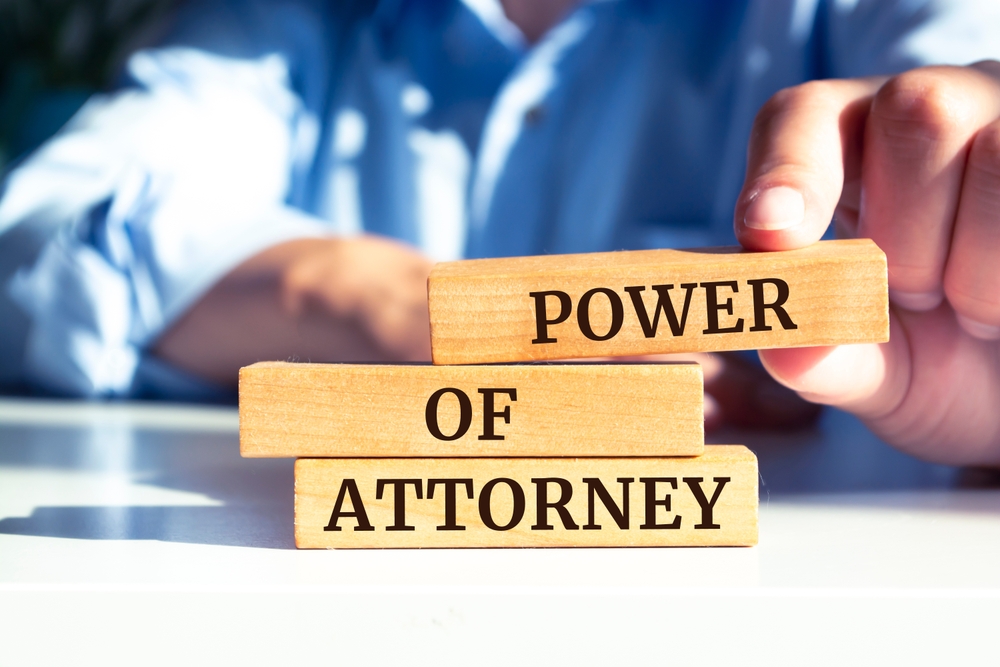The estate tax gets many headlines and was a focal point in recent negotiations over…

Why Some Powers of Attorney Fail in Florida (and How to Fix Yours)
A Power of Attorney (POA) is one of the most important documents in a Florida estate plan. It gives someone—the agent or attorney-in-fact—the legal authority to act on your behalf in financial and legal matters if you cannot do so yourself.
But here’s the truth: even a properly signed POA can fail when it matters most. From being rejected by banks to becoming invalid due to technical mistakes, these documents must be carefully drafted and maintained to work in real life. Let’s explore the most common ways POAs fail in Florida—and how to prevent those mistakes.
Picking the Right Agent Under Florida Law
The success of your POA depends heavily on who you choose as your agent. Under Florida law, your agent must be at least 18 years old and someone you trust completely. But beyond those basics, you need to think carefully about whether this person is dependable, financially responsible, and able to act under pressure.
Example: A Florida retiree names her youngest son as her POA agent because he “has the most free time.” When she becomes incapacitated, it turns out he is overwhelmed with personal debt and struggles to manage her bills responsibly.
Solution: Choose someone who is organized, financially literate, and willing to serve. If no family member fits, you may want to appoint a trusted friend or even a professional fiduciary.
Why Florida Banks and Hospitals Sometimes Reject POAs
It surprises many people to learn that a valid Florida POA can still be rejected by financial institutions, medical providers, or insurance companies. This usually happens when:
- The document is too old (some institutions question anything more than five years old).
- The wording is vague or doesn’t meet the company’s internal requirements.
- The agent cannot produce an original or certified copy.
Example: A caregiver presents a 15-year-old POA at a Florida bank. The bank refuses to accept it because its policy requires more recent documentation or state laws have changed since the document was drafted. The family must go through the court to establish a guardianship—costing time and money.
Solution: Update your POA every few years and provide copies to key institutions in advance to minimize roadblocks.
How a Notary or Witness Mistake Can Void Your Florida POA
Florida has strict execution requirements for Powers of Attorney. A durable POA must be signed in the presence of two witnesses and a notary public. If any of these steps are missed, the document can be declared invalid.
Example: A Melbourne couple prepares a DIY POA but only signs it in front of a notary, skipping the witness requirement. Later, when the husband has a stroke, the bank rejects the POA because it wasn’t executed properly under Florida law.
Solution: Always execute your POA under the supervision of an experienced attorney to ensure compliance with Florida Statutes.
What Happens in Florida If Your POA Agent Can’t Serve?
Even if your first choice of agent is reliable, life can be unpredictable. If your only named agent dies, moves away, or declines to serve, your POA may become useless.
Example: A woman in Brevard County names her husband as her sole agent. When he develops dementia, she has no backup in place. Their children are forced to petition the court for guardianship so someone can step in.
Solution: Always name at least one successor agent. It’s an easy step that can prevent your family from needing expensive and stressful court involvement.
Why Sharing Your POA Matters as Much as Signing It
A POA that no one knows about—or can’t be located—may fail at the worst time.
Example: A Brevard resident keeps the only original POA locked in a safe deposit box where no one else has access. When she becomes incapacitated, her agent cannot act because the document is literally unreachable.
Solution: Store your POA in a safe but accessible place. Provide copies to your agent, your attorney, and trusted institutions. Make sure your family knows where to find the original when needed.
Final Takeaway: Florida POAs Must Be Built to Last
A Florida power of attorney is not just a form—it’s a lifeline for your loved ones if you cannot make decisions for yourself. But it only works if it’s carefully prepared, properly executed, and regularly updated.
By choosing the right agent, complying with Florida’s strict signing requirements, naming backups, and making sure the document is accessible, you can ensure that your POA will work when it’s truly needed.
If you’re unsure whether your power of attorney is current and enforceable under Florida law, now is the time for a review. An experienced estate planning attorney can help you confirm that your POA will stand up in real life—not just on paper.
Frequently Asked Questions About Florida Powers of Attorney
Q: Does a power of attorney expire in Florida?
A properly executed durable power of attorney in Florida does not expire on its own. However, it does end if you revoke it, if you pass away, or if your named agent can no longer serve and you did not appoint a backup. Regular reviews are wise to ensure the document still meets your needs. Despite this answer, which is true from a legal perspective, our example above really happened. Banks graft on their own requirements to the law. It is expensive and time consuming to fight them on it.
Q: Can a Florida bank refuse to accept my power of attorney?
Yes, it happens. Some banks may refuse to honor a POA if it is too old, unclear, or does not meet their internal requirements. This is why keeping your POA updated, properly worded, and shared with the institution in advance is so important.
Q: Do I need witnesses and a notary for a Florida POA?
Yes. Under Florida law, a durable power of attorney must be signed before two witnesses and a notary public. If these formalities aren’t followed, the document could be declared invalid.
Q: Can I have more than one agent under my Florida power of attorney?
Yes. You can name co-agents who serve together, or you can name a primary agent and one or more successor agents. Many people prefer to name a single trusted person as the primary agent to avoid confusion, with backups listed in case the first cannot serve.
Q: What’s the difference between a general and a durable power of attorney in Florida?
A general power of attorney gives broad authority but becomes invalid if you become incapacitated. A durable power of attorney, by contrast, stays effective even if you lose capacity—which makes it the preferred choice for most estate planning.
Q: How often should I update my Florida power of attorney?
It’s best to review your POA every few years or after major life changes (marriage, divorce, death of a spouse, moving to another state, etc.). Even if the law hasn’t changed, financial institutions often look more favorably on newer documents.



